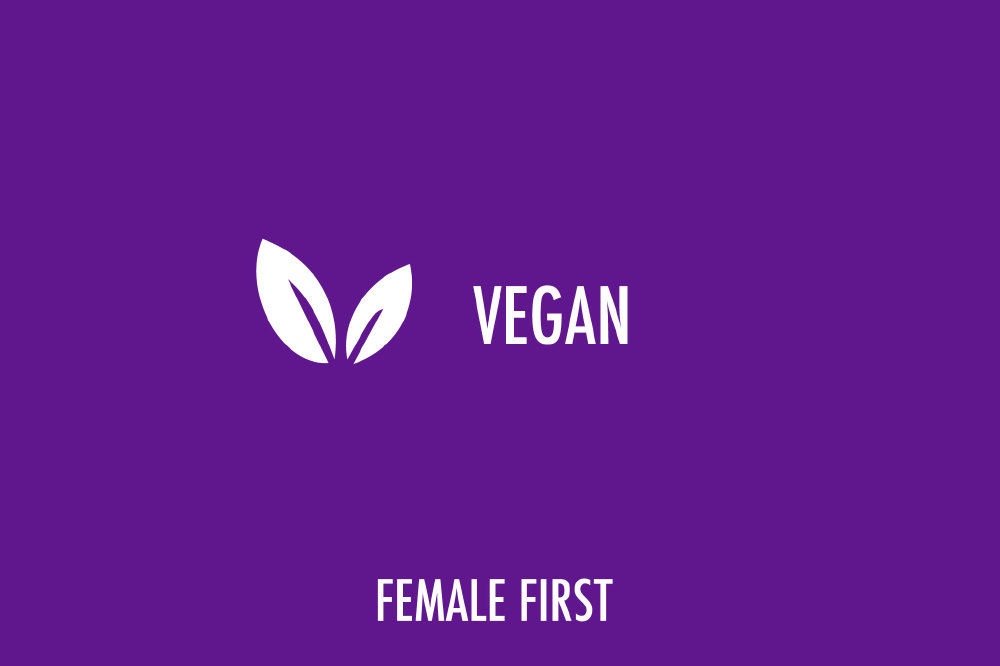With ‘Veganuary’ now over, it’s a good time to consider the pros and cons of going green for good.

Vegan on Female First
Health Coach Dietitian, Valerie Maclean, RD BSc, makes an assessment on whether veganism is a plausible diet or even worth the effort.
She says: “More people than ever before are opting for a plant-based, vegan diet. However, with a wealth of information available it may feel overwhelming to decide whether it’s a good choice”.
So, what are the pros and cons of Veganism:
Pros
- The saturated fats in our diet that raise blood cholesterol levels come primarily from animal products. By avoiding foods which are typically high in saturated fat, such as red meat and cheese, can have a positive impact on blood cholesterol levels.
- Overall, the good news about veganism is that it can have a positive impact on health. Vegan diets tend to be high in fruit and vegetables which are rich in vitamins and minerals and are high in fibre which can decrease the risk of certain diseases.
- Vegan diets can be generally lower in calories than non-vegan diets due to meat and dairy products being excluded from the diet. This can decrease the likelihood of diseases that are associated with being overweight such as diabetes, high blood pressure and a reduced risk of heart disease. However, it is still important to consider weight management as all types of fat, whether healthy like nuts, or unhealthy, still have the same calorific value (9 Kcal per gram).
- Veganism contributes towards a more sustainable way of living as a plant-based diet requires much less farming than a meat and dairy diet which has a positive effect on CO2 emissions.
Cons
- There is no denying that veganism can be restrictive. Despite its popularity, it can be time consuming initially to read food labels that you are purchasing to ensure they are vegan friendly. It can also be difficult in social situations, such as when dining out or eating at someone else’s home.
- Planning vegan meals may be challenging initially as you need to consider the overall balance and nutritional content of meals. Nutritional requirements vary between individuals and are dependent on a person’s height, weight, age and levels of activity.
- The British Nutrition Foundation helpfully breaks down nutrition requirements for all ages and genders and is a useful guide. It’s freely available online here.
- Another factor to consider is the nutritional deficiencies associated with a vegan diet. Traditionally, we’re able to get some of our “essential” nutrients from animal and dairy products.
- A vegan diet may lack essential amino acids, iron and omega 3 fatty acids and vitamin B12 so it’s important to keep a varied diet. Good sources of vegan foods include:
- Tofu, walnuts and pumpkin seeds contain plant-based omega-3’s.
- Soya, buckwheat, amaranth and quinoa contain all “essential” amino acids although food combining of different protein sources can provide all the “essential” amino acids needed within the diet. These are important because our bodies can’t produce “essential” amino acids, so the only way we can get them is through diet.
- Pulses, nuts and seeds are all good sources of protein.
- Legumes and beans like lentils, chickpeas and soybeans are good sources of iron. To make the most of non-meat sources of iron, eat them with Vitamin C.
- Plant milks such as almond or coconut milk are often fortified with vitamin B12.
- Certain breakfast cereals may also fortified with all of these nutrients.
Not quite ready to be fully vegan?
Some of the benefits of a vegan diet are clear, but careful consideration should be given to the pros and cons of veganism as a lifestyle choice. Small changes to your diet can also have a positive impact:
- Try going vegan or meat free for just one day a week to reap some of the positive benefits
- Try to limit red meat to once or twice a week and be mindful of quantity; a portion size of meat should be no bigger than the palm of your hand
- Limit the amount of processed meats such as bacon and sausages which can be high in saturated fat and may impact cholesterol levels and salt, potentially increasing blood pressure
- Replace red meat with chicken or fish which are leaner sources of protein or consider non-meat protein such as chickpeas, lentils and kidney beans
- Consider alternative methods of cooking such as baking or grilling instead of frying.
Health Coach Dietitian, Valerie Maclean is from Bupa UK.
For extra information on eating a balanced diet, and some meat-free recipe ideas, read more here: http://www.bupa.co.uk/health-information/directory/v/vegetarian-diet

